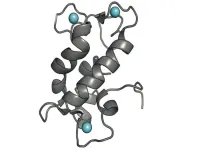(Press-News.org) New research from Memorial Sloan Kettering Cancer Center (MSK) and the Sloan Kettering Institute — a hub for basic science and translational research within MSK — offers new proof-of-concept compounds against acute myeloid leukemia; reports results from a phase 1 clinical trial appraising two drugs against low-grade glioma; examines MSK’s first-in-the-nation program integrating herbal medicine into oncology care; and identifies how high-grade histologic patterns in lymph node metastases could better predict lung cancer outcomes.
New degraders offer proof-of-concept approach against AML
Acute myeloid leukemia (AML) is a blood cancer characterized by uncontrolled proliferation of immature myeloid cells. A new collaboration between researchers at the Sloan Kettering Institute and Harvard University developed small-molecule degraders of two proteins that are critical for the development of AML: IKZF2, a transcription factor specific to blood formation, and casein kinase 1 alpha (CK1α), a serine/threonine kinase. Degradation of IKZF2 and CK1α blocked cell growth and induced myeloid cells to differentiate into healthy mature cells, delaying leukemia progression in mouse models of AML. While these “tool compounds” aren’t ready to be given to people, they provide a proof of concept, demonstrating that simultaneously degrading IKZF2 and CK1α is a viable therapeutic strategy, note the study authors, who were led by first authors Sun-Mi Park, PhD, a postdoctoral researcher in the lab of senior study author Michael Kharas, PhD, at MSK, and David Miyamoto, a graduate student in the lab of senior study author Christina Woo, PhD, at Harvard. The findings also provide a framework for developing degraders against other types of cancer, or which could be used in combination with immunotherapies. in Cancer Cell.
Treatment for low-grade glioma advances to phase 3 clinical trial
Most low-grade gliomas in adults harbor mutations in the genes encoding IDH1 or IDH2. A phase 1 trial for patients undergoing surgery for recurrent IDH1-mutant gliomas compared two different IDH inhibitors (vorasidenib and ivosidenib) to determine which drug was more effective at penetrating the brain and at suppressing 2-HG — the metabolic product of mutated IDH. The randomized, multisite trial enrolled 49 patients between April 2019 and April 2020. Both vorasidenib and ivosidenib reduced concentrations of 2-HG by more than 90%, were well-tolerated, and showed encouraging tumor responses, according to findings from a research team led by study first-author Ingo Mellinghoff, MD, Chair of MSK’s Department of Neurology. Vorasidenib showed greater brain penetration than ivosidenib. Reduction of 2-HG was associated with a decrease in tumor cell proliferation and with a reversal of gene expression programs typically associated with IDH mutations, documenting an active role of the mutant IDH enzyme in tumor maintenance. Based on the phase 1 trial results, vorasidenib was advanced to a phase 3 trial. in Nature Medicine.
Study examines novel MSK program integrating herbal medicine into oncology care
Nearly 60% of patients with cancer self-prescribe herbal supplements during and after cancer treatment, often without consulting their doctors. Some supplements, however, like antioxidants, can interfere with chemotherapy and radiation treatment. MSK launched its Herbal Oncology Program in 2019 — the first such program in the nation — to help patients get relief for symptoms like constipation, fatigue, insomnia, and pain while improving patient-provider communication about the risks and benefits of supplements. A new study from MSK’s Jun Mao, MD, MSCE, Chief of MSK’s Integrative Medicine Service, and colleagues examines the implementation of the herbal medicine program within the context of a large academic cancer center and its impact on patient well-being. In the program’s first couple of years, 1,500 traditional Chinese medicine herbal prescriptions were written for more than 850 patients. Herbal supplements were most commonly prescribed to address gastrointestinal symptoms (37%); pain (28%); and treatment-related fatigue, sleep, and mood disorders (27%). More than 100 patients responded to a survey about their experiences, with more than 70% reporting they were satisfied with the effectiveness of the herbs, and less than 7% reporting having experienced mild adverse events that went away after discontinuing the herbs. “The study’s findings support the feasibility of integrating herbal medicine into an academic oncology setting,” the authors conclude, adding that the observed patterns of herbal prescriptions also point toward future areas of research to strengthen evidence around safe and effective supplement use. in Supportive Care in Cancer.
High-grade histologic patterns in lymph node metastases could better predict lung cancer outcomes
The presence of high-grade tumor cells in the lymph nodes of stage 2 and stage 3 lung cancer patients can predict poor outcomes, according to a new study from MSK researchers. These predictions might be used to better identify patients who are at higher risk for worse outcomes than the current staging system used to determine treatment, which relies on the location of the lymph nodes to which lung cancer has spread and the number of lymph nodes involved, the authors found. The study by senior author Prasad Adusumilli, MD, and colleagues analyzed overall survival, recurrence, and lung cancer-related death in 360 patients who underwent lobectomy for stage 2 or stage 3 lung adenocarcinoma, with a median follow-up time of 6.8 years. Both micropapillary and solid histologic patterns in lymph node metastases were associated with poor outcomes. The findings suggest that not all stage 2 and 3 patients are alike and there is potential value in using the histologic patterns in the lymph nodes to guide decision-making in clinical practice and clinical trials, the authors note. in the Journal of Thoracic Oncology.
END
MSK Research Highlights, March 9, 2023
2023-03-09
ELSE PRESS RELEASES FROM THIS DATE:
New biosensor reveals activity of elusive metal that’s essential for life
2023-03-09
UNIVERSITY PARK, Pa. — A new biosensor engineered by Penn State researchers offers scientists the first dynamic glimpses of manganese, an elusive metal ion that is essential for life.
The researchers engineered the sensor from a natural protein called lanmodulin, which binds rare earth elements with high selectivity and was discovered 5 years ago by some of the Penn State researchers involved in the present study.
They were able to genetically reprogram the protein to favor manganese over other common transition ...
Deconstructing Lignin
2023-03-09
It’s a tough job, but someone’s got to do it. In this case, the “job” is the breakdown of lignin, the structural biopolymer that gives stems, bark and branches their signature woodiness. One of the most abundant terrestrial polymers on Earth, lignin surrounds valuable plant fibers and other molecules that could be converted into biofuels and other commodity chemicals — if we could only get past that rigid plant cell wall.
Fortunately, the rather laborious process already occurs in the guts of large herbivores through the actions of anaerobic microbes that cows, goats and sheep rely on to release the nutrients ...
People don’t know what a preprint is. Here’s why that matters
2023-03-09
New research from the University of Georgia suggests most people don’t understand the difference between a preprint and a published academic journal article.
Preprints are research papers that haven’t undergone peer review, the process by which studies’ findings are validated by experts who weren’t involved with the research themselves.
The study found the majority of readers have little to no understanding of what a preprint actually is. That lack of understanding could lead to public distrust in science since findings and how those findings are described can change between the preprint phase and ...
Ontario sees big jump in amphetamine-related emergency visits
2023-03-09
Ontario’s emergency departments are seeing a dramatic rise in visits related to the use of unregulated amphetamines and their street equivalent: crystal meth.
In a new paper published in the Canadian Journal of Psychiatry, researchers found that individuals accessing the emergency department (ED) for amphetamine- and methamphetamine-related concerns grew from 233 in 2003 to 4,146 individuals annually by 2020.
“That’s a nearly 15-fold increase – pretty dramatic. If we consider ED visits as a crude proxy for how prevalent unregulated amphetamine use is, then the observed trend is highly concerning,” said the paper’s lead author, ...
Highlights from the journal CHEST®, March 2023
2023-03-09
Glenview, Illinois – Published monthly, the journal CHEST® features peer-reviewed, cutting-edge original research in chest medicine: Pulmonary, critical care and sleep medicine and related disciplines. Journal topics include asthma, chest infections, COPD, critical care, diffuse lung disease, education and clinical practice, pulmonary vascular disease, sleep, thoracic oncology and the humanities.
The March issue of the CHEST journal contains 44 articles, including clinically relevant research, reviews, case series, commentary and more. Each month, the journal also offers complementary ...
Nutrition educators support nutrition incentives for food and nutrition security programs to promote increased intake of fruit and vegetables
2023-03-09
Philadelphia, March 9, 2023 – The Gus Schumacher Nutrition Incentive Program (GusNIP), funded by the U.S. Department of Agriculture, includes Nutrition Incentive (NI) and Produce Prescription (PPR) programs. These programs provide financial incentives for healthy eating by increasing individuals’ purchase and consumption of fruits and vegetables and reducing food insecurity in order to prevent and treat nutrition-related diseases. A study in the Journal of Nutrition Education and Behavior, published by Elsevier, explores how nutrition educators work with NI and PPR programs ...
Diverse approach key to carbon removal
2023-03-09
RICHLAND, Wash.—Diversification reduces risk. That’s the spirit of one key takeaway from a new study led by scientists at the Department of Energy’s Pacific Northwest National Laboratory. The effective path to limiting global warming to 1.5 degrees Celsius by the end of this century likely requires a mix of technologies that can pull carbon dioxide from Earth’s atmosphere and oceans.
Overreliance on any one carbon removal method may bring undue risk, the authors caution. And we’ll likely need them all to remove the necessary amount ...
New class of drugs may prevent infection by wide range of COVID-19 variants
2023-03-09
Study Title: Pharmacologic disruption of mSWI/SNF complex activity restricts SARS-CoV-2 infection
Publication: Nature Genetics https://www.nature.com/articles/s41588-023-01307-z
Dana-Farber Cancer Institute author: Cigall Kadoch, PhD
Summary:
A new class of oral drugs can inhibit a wide range of SARS-CoV-2 variants, researchers report, potentially identifying new antiviral agents providing broad activity against the constantly emerging new strains of the COVID-19 virus. The researchers discovered that the mammalian SWI/SNF (also called BAF) chromatin remodeling complex, a regulator of gene expression –controls the expression of the ACE2, the ...
MSU research reveals how climate change threatens Asia’s water tower
2023-03-09
EAST LANSING, Mich. – Tibet is known as the “Water Tower of Asia,” providing water to about 2 billion people and supporting critical ecosystems in High Mountain Asia and the Tibetan Plateau, where many of the largest Asian river systems originate. This region is also one of the areas most vulnerable to the compounding effects of climate change and human activities. Michigan State University researchers are identifying policy changes that need to happen now to prepare for the future impacts projected by climate models.
The rapid melting of glaciers and snowpack due to regional temperature increases has caused ...
Arctic river channels changing due to climate change, scientists discover
2023-03-09
A team of international researchers monitoring the impact of climate change on large rivers in Arctic Canada and Alaska determined that, as the region is sharply warming up, its rivers are not moving as scientists have expected.
Dr. Alessandro Ielpi, an Assistant Professor with UBC Okanagan’s Irving K. Barber Faculty of Science, is a landscape scientist and lead author of a paper published this week in Nature Climate Change. The research, conducted with Dr. Mathieu Lapôtre at Stanford University, along with Dr. Alvise Finotello at the University of Padua in Italy, and Université ...







